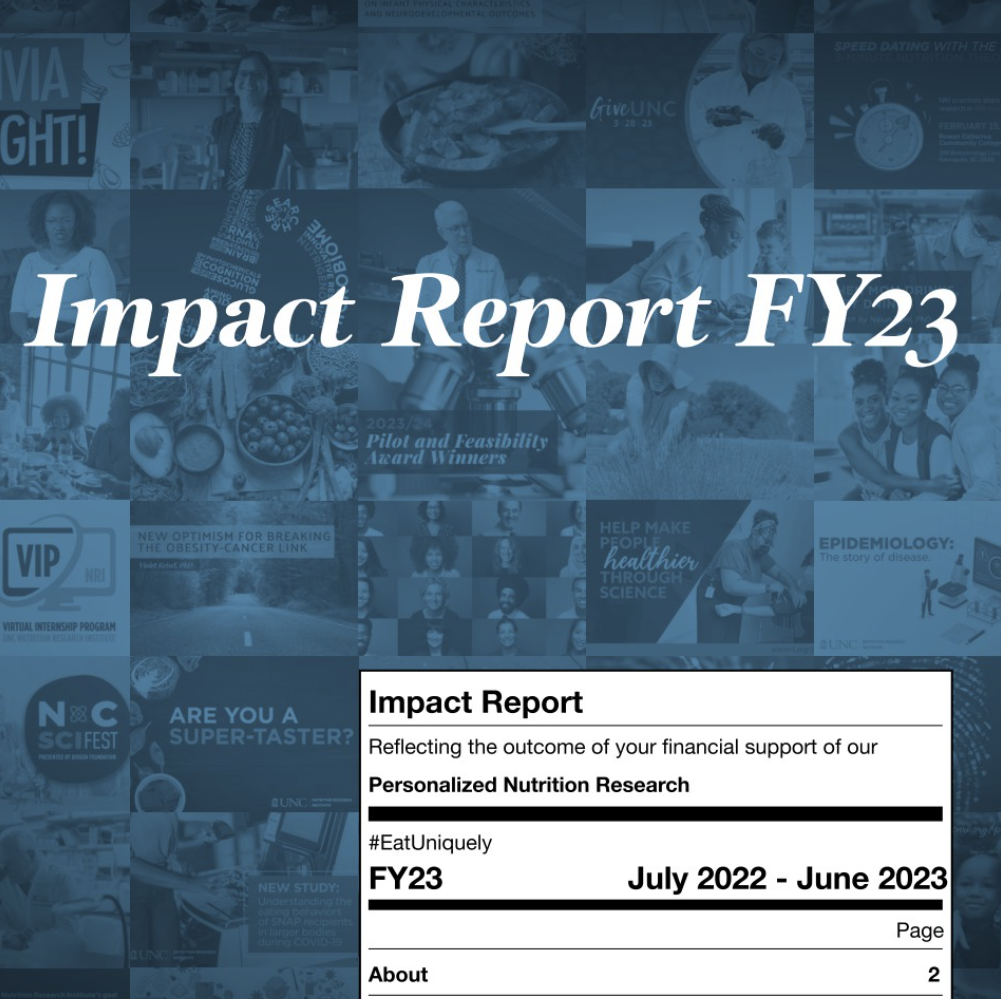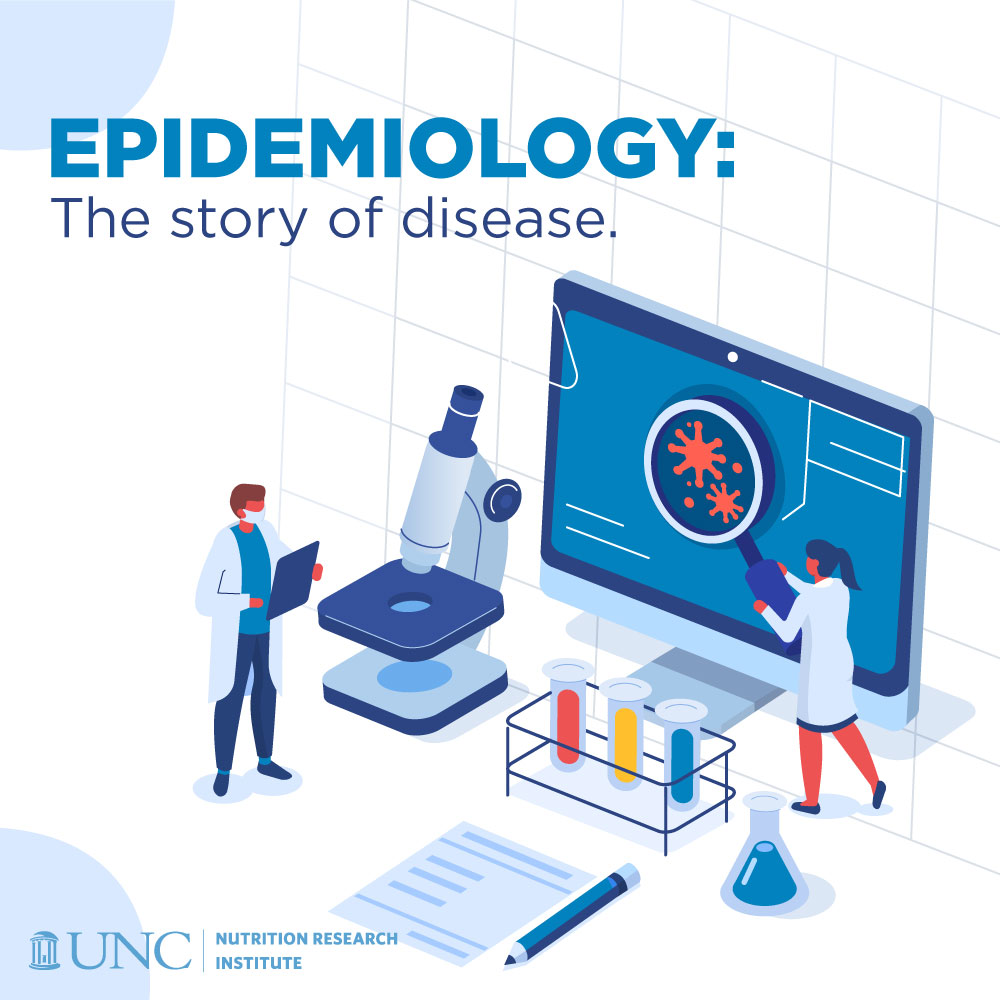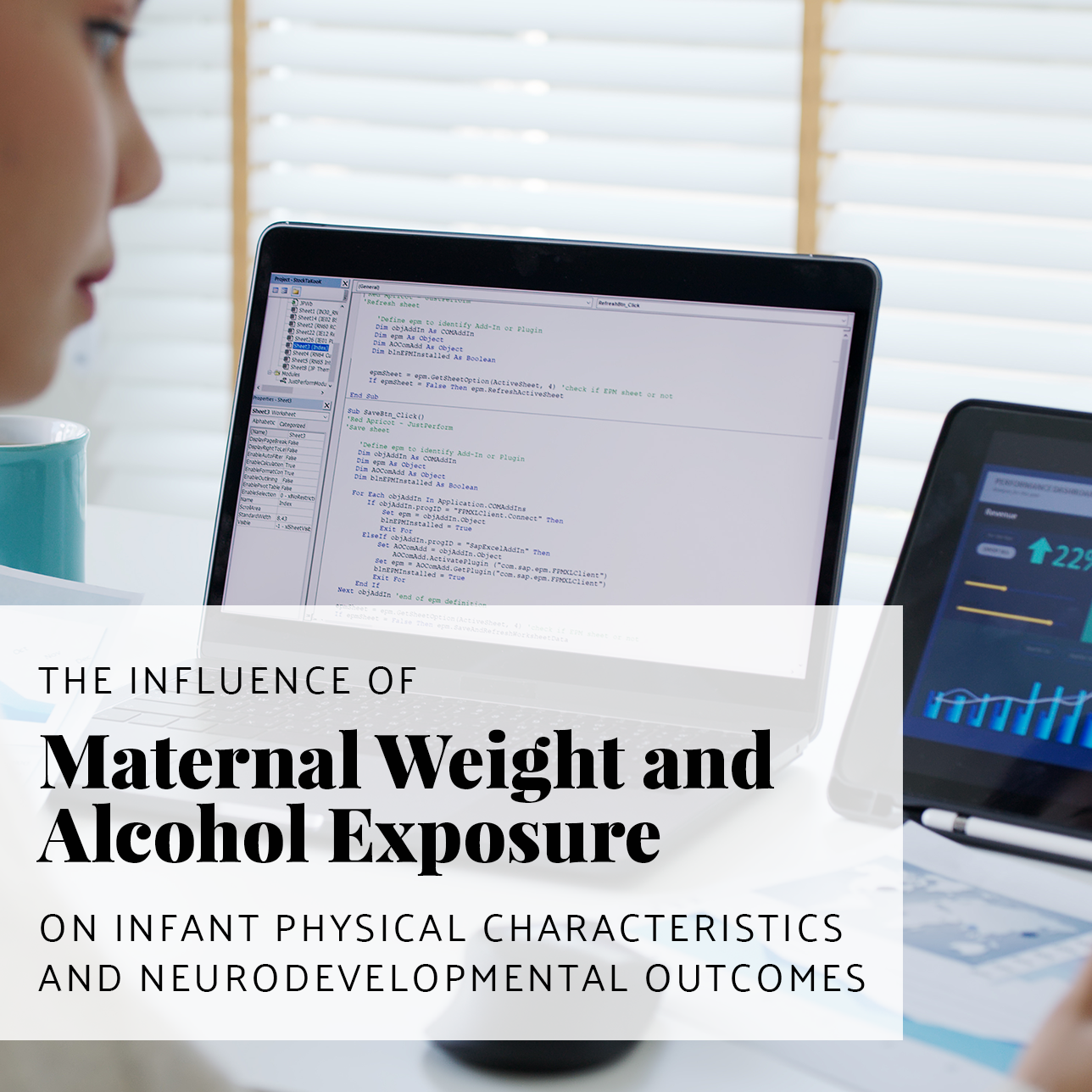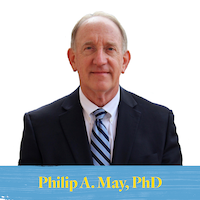


Epidemiology: The story of disease.
Every good story includes the “5 Ws”: who, what, where, when, and why. In studying how disease begins and remains in a population, we’re writing the story of that disease, and we use the same technique. Understanding the various approaches to the “5 Ws” of a given...
The influence of maternal weight and alcohol exposure on infant physical characteristics and neurodevelopmental outcomes
A new study from NRI scientists, Julie Hasken, PhD, MPH, and Philip May, PhD, published on ScienceDirect in May 2022 examines the influence of maternal weight and alcohol exposure in infant physical characteristics and neurodevelopment outcomes. Dr. Hasken was the...
Con-grad-u-lations, Julie Hasken!
Congratulations to Julie Hasken, the Nutrition Research Institute’s newest PhD! Julie earned her doctorate from the UNC Chapel Hill Department of Nutrition in 2021 and is now a postdoctoral research associate with Dr. Philip May. Julie joined the NRI in 2012 as a...
Early-Life Predictors of Fetal Alcohol Spectrum Disorders
January 22, 2020 – The clinical teams at the UNC Nutrition Research Institute and in South Africa led by principal investigator Philip A. May, PhD have published findings of a decade-long effort to drive down the age at which the diagnosis of fetal alcohol spectrum disorders (FASD) can be made in affected children. The paper, “Early-Life Predictors of Fetal Alcohol Spectrum Disorders” is published in Pediatrics.

January Faculty Focus: Philip May, PhD
January 11, 2019 – “I’ve been called ‘tenacious’,” says Philip A. May, PhD, with a hint of humor. It’s an understatement for the man who relentlessly pursues data that shed light on important public health issues across the United States and around the globe. May, professor of nutrition at the UNC Nutrition Research Institute (NRI) and in the Department of Nutrition at the Gillings School of Global Public Health at UNC-Chapel Hill, has been a demographer and epidemiologist for the better part of 50 years. He calls his style of research “shoe-leather” epidemiology, meaning that he gathers information for studies by getting out in the field and immersing himself in communities to really know the people in his studies. For nearly 30 of those years, May’s focus has been on learning about the often-dire effects and alarmingly high prevalence of fetal alcohol exposure.
